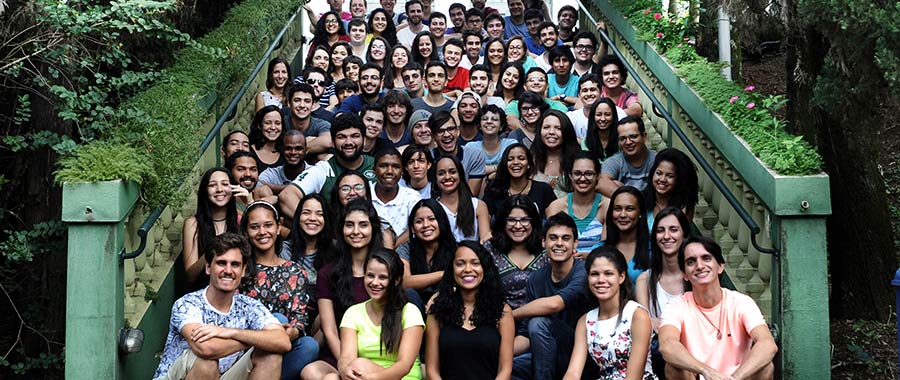The universe of university life presents a fertile ground for the application and exploration of Bahá’í teachings, particularly in the context of fostering cohorts of students who are inspired to act for a better world. Such cohorts play a pivotal role in bringing about transformative changes to societal structures, driven by the ethical frameworks and principles intrinsic to the Bahá’í Faith. This exploration delves into the profound intersection of university experiences and Bahá’í principles, elucidating why this synergy captivates both students and educators alike.
The Bahá’í teachings emphasize the oneness of humanity, a concept that fundamentally challenges existing paradigms of division and discrimination. As university cohorts navigate this diverse milieu, they are increasingly confronted with the reality of global interconnectedness. The environment within academic institutions fosters dialogue among students from myriad cultures, religions, and socio-economic backgrounds. This confluence serves as a microcosm for the wider world, allowing students to experience firsthand the richness of diversity while grappling with the persistent challenges of prejudice and inequality.
Moreover, Bahá’í principles advocate for the harmonious integration of science and religion, a duality that is particularly relevant in contemporary university settings. As students embark on their academic journeys, they often encounter dichotomies between empirical knowledge and spiritual understanding. The Bahá’í approach elucidates that both realms seek truth and can, therefore, coexist harmoniously. This belief empowers student cohorts to engage in interdisciplinary studies, fostering holistic perspectives that can lead to innovative solutions for pressing global issues, such as climate change and social injustice.
Central to the Bahá’í teachings is the notion of service to humanity, a tenet that resonates deeply with university cohorts. Students, at this formative stage in their lives, are often eager to imbue their academic pursuits with purpose. The Bahá’í emphasis on altruism inspires students not only to excel academically but also to apply their intellect in ways that benefit society. This encourages the formation of social action groups, community service initiatives, and collaborative projects that reflect a commitment to collective betterment. As students engage in such acts of service, they cultivate skills—leadership, empathy, and critical thinking—that are essential for the architects of a sustainable future.
Furthermore, the teachings of the Bahá’í Faith assert the importance of education as a catalyst for social transformation. Education, in this context, transcends mere vocational instruction; it embodies a comprehensive development of the individual. University cohorts inspired by these teachings often engage in discussions surrounding educational equity, advocating for policies that ensure access to quality education irrespective of socio-economic status. This activism not only enriches their academic pursuits but also strengthens the fabric of their communities.
A striking observation within university environments is the profound impact of collaborative endeavors. Bahá’í teachings emphasize the importance of unity and collaboration, principles that directly inform the dynamics of student cohorts. In an academic setting, when students unite under a common purpose—be it environmental activism, social justice, or community development—they amplify their voices and resources. This cooperative spirit exemplifies the Bahá’í belief in the power of collective action to effectuate meaningful change. Opportunities for joint projects enable students to synthesize diverse perspectives, fostering creativity and innovation that’s pivotal for addressing complex global challenges.
The inspiration to act for a better world is underlined by the concept of moral responsibility articulated within Bahá’í writings. Students, influenced by this moral framework, are often compelled to critically assess their roles within society. This introspection stimulates a profound realization: the potential of individual actions to contribute to the greater good. Consequently, university cohorts frequently embark upon initiatives designed to address systemic issues of poverty, discrimination, and environmental degradation, embodying a generation that seeks not just success, but also the advancement of humanity’s collective welfare.
Additionally, the Bahá’í principles encourage students to embrace the concept of lifelong learning. This philosophy advocates that education is not merely confined to the classroom; rather, it extends into every interaction and experience. As students build networks and engage with the world outside academia, they become lifelong learners committed to continuous personal and communal growth. This commitment fosters resilience, equipping them to navigate challenges and seize opportunities to foster change.
Moreover, university cohorts inspired by Bahá’í teachings often find themselves in roles of mentorship, further propagating the ideals of service and collaborative learning. By embracing roles that nurture emerging students, they create a supportive environment that echoes the Bahá’í emphasis on education and unity. This mentorship not only cultivates a sense of belonging but also reinforces the cycle of inspiration and action essential for positive transformation within communities.
In conclusion, the intersection of Bahá’í teachings with university life cultivates cohorts of students who are not merely passive observers of societal dynamics, but active participants in the quest for a better world. Grounded in principles of unity, service, and collaboration, these students are uniquely positioned to address the complex challenges of contemporary society. Their endeavors are not just reflective of an academic pursuit; they are a manifestation of a profound commitment to the betterment of humanity, underscoring how university cohorts can indeed inspire action that transcends individual achievement and contributes to a collective future rooted in peace, justice, and equity.
